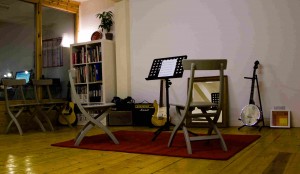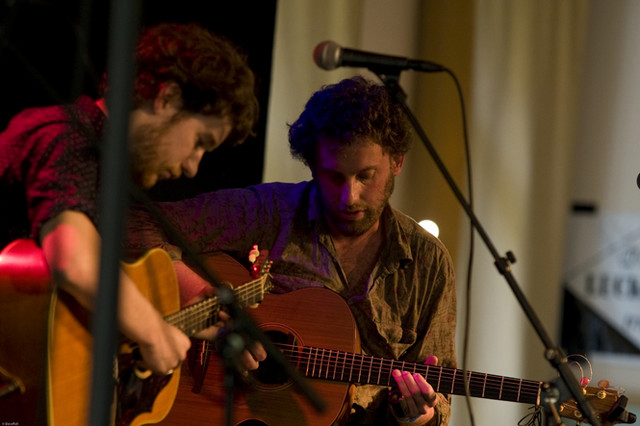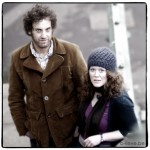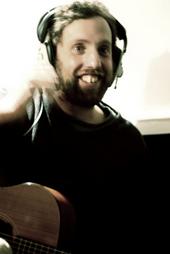Prices and other information
I offer 3 lesson lengths on all instruments (guitar, mandolin, 5 string banjo)
30 minutes (£15) – Mostly for complete beginners, but also suitable for those who would like to focus on a specific aspect of playing for a short time.
45mins (£19) – I offer this just an alternative to the hour long lesson, where we can go through a good amount of material without being overwhelmed. Also good if your relatively new to playing due to the sore fingers factor/
One Hour (£25) – The most popular lesson length. Plenty of time to get to grips with, and practise the material. I don’t try and cram too many ideas into any lesson as it can become an overload of information pretty quickly, but I’m also happy to go through a lot of material if you prefer to get some ideas and work on them at home.
What Do I Need To Bring To a Lesson?
Really only yourself and a guitar. If you can’t bring a guitar to your lesson, I have a spare guitar that you are welcome to use. It’s also very handy if you have a way of recording the key points of the lesson, on a phone for instance. If this isn’t possible, I can video the main points for you, and send the video on an email. I also supply the written music (in guitar tab format) of the material that’s played, with a guide of how to read tab if required.
Location
I’m teaching from a dedicated studio located in the Hidden Lane, 1103 Argyle Street, G3 8ND.

<
View Glasgow Guitar Teacher in a larger map
There is cheap on street parking available on nearby Corruna Street, which is about 2 minute walk from the studio.
Teaching Strategy
Playing music is one of the most fulfilling and ultimately rewarding things to do, whether socially with other people or just playing for your own pleasure. Even people who claim to be unaffected by music will have sung along with others in one context or another.
Its not a coincidence that so many people across the world have learned to play the guitar due in one part to the nature of the guitar itself – they are portable and relatively inexpensive, but also to its verstility as an instrument – a singaround at a party, the solo during “Hotel California”, Robert Johnson playing the blues at the crossroads, John Williams playing “Cavatina” (the theme from the film The Deerhunter), to whatever music makes the soundtracks to your days.
Starting an instrument for the first time can seem quite daunting, but its a suprisingly short learning curve from starting to play the guitar by learning your first chords, to playing your first songs (and most songs can be played very effectively with only 3 chords) to picking out more complex melodies. When I was learning to play, I also found that the pleasure I got from listening to music was greatly increased by my new found musical knowledge, a pleasant side effect, shared by many people i have spoken to since, and one that has only increased over time.
So, if you want to learn to play the guitar, there are two main ways of learning:
1. The self taught (or informal lessons) route,
2. The lessons route
In my experience, these should definately not be thought of as mutually exclusive, but instead co-exist together in different amounts depending on a few factors:
1. The style of music
Its not a secret that some styles of music are more associated with formal training than others, with the obvious examples being classical music, and to a slightly lesser degree, jazz. Both of these genres, broadly speaking, demand a very high level of expertise, and i’m sure you’ll agree that the idea of a classical concert guitarist that has had no training is an unlikely one. What is not unlikely, however, is a guitarist, through a mixture of guitar lessons (as opposed to classical training), learning from other sources (internet, other musicians), and a good bit of practise attains such a high level of techinical expertise and musicianship that they can play classical music on the guitar (and usually anything else they want, too).
There is formal training, and in a lot of cases formal qualifications, available in most styles of music these days, but i just picked classical music out as i think its the style most associated with formal training on any instrument.
2. A kind of Mentality
I’ve noticed that some musicians when asked if theyve had lessons, take a lot of pride in saying that they’re entirely self taught, and some people genuinely may be, but i think for the most part, people learn through a number of sources similar to above. There are a lot of resources available through the internet, that offer the tablature (sheet music written for the guitar) for most pieces (although not all by a long way) that you can think of, and video lessons showing how to put your right hand with your left.
So with this wealth of resources, why take guitar lessons? The most simple answer to this is that with a good teacher, lessons will decrease the amount of time it takes you to progress….lessons can remove months of frustration, demonstrating fundementals to a guitar newbie or a specific technique to a player at any stage.
Teaching Philosophy
I think the main thing about learning music is that it is not a linear process in that you can’t start at the begininng, learn everything in order, and arrive at an end point. There is, of course, a starting point which is usually some chords or a melody, but after that it is often easier and more satisfying to learn from a number of angles simultaneously. For instance, this could be using the chords to the introduction to Stairway to Heaven, to get familiar with the scale for the solo and an introduction to fingerstyle guitar playing. Not all at the same time of course, but using each one to understand how it all fits together.
Most people have a goal in mind when they start playing, which may be to learn a specific song, get good at a technique, or start writing their own songs. Lessons are structured to achieve these goals, while also developing a wider guitar technique, so learning one musical phrase or solo will clear the way to playing others with little extra work.
Paul Tasker Biography
“One of the guitar players of his generation” – Maverick Magazine, November 2010
“As talented a guitarist as you’ll hear in many a moon” – R2 Magazine, December 2010
Guitar lessons in Glasgow tutor Paul Tasker began playing the guitar in Glasgow in the 1990s eclectically influenced by fingerstyle guitar players Bert Jansch and John Renbourn as well as Gram Parsons, the Rolling Stones, AC/DC and many others. Tasker moved to Aberdeen in the mid 1990s, a town with a strong tradition of fiddle and Scottish music, and started accompanying Scottish traditional music. Shortly after, Paul formed his first band “On The Case” consisting of French accordionist Regis Le Chattelier, and fiddle player Sandy Tweddle. This lineup was characterised by floating accordion and guitar led tunes and “On the Case” played at many folk clubs and festivals in the north east of Scotland including a performance on Grampian television. Paul left “On The Case” after about a year to join a new Scots / Irsh traditional music band called “Banish Misfortune” in 2000. “Banish Misfortune” played a high energy take on traditional music and went on to play at most folk clubs and festivals around Scotland including Orkney folk festival, Celtic Connections and tours in the netherlands and Faroe islands.

During the time playing with Banish Misfortune, Paul started teaching guitar lessons in Aberdeen after being asked to run a series of workshops on traditional guitar for the Scottish Culture and Tradition nigh classes in Aberdeen. These proved very successful so a second series of workshops this time on fingerstyle guitar were planned. This coincided with setting up another project away from traditional music showcasing songwriting and fingerstyle guitar. “Sal” played their first gigs in early 2002 and in the next 18 months played at T in the Park, and GoNorth music showcase before winning the Danny Kyle open stage award 2004 at Celtic Connections festival in Glasgow. During this period in Aberdeen, Paul became the advanced guitar tutor for the Scottish culture and traditions course as well as teaching rock guitar at rehearsal rooms in Aberdeen.

Doghouse Roses were formed in 2005 when Paul moved from Aberdeen back to Glasgow. In addition, Paul also plays the guitar and mandolin for US based, alt-country band The Willard Grant Conspiracy after Doghouse Roses were noticed playing at the Merchant City Festival by Willard Grant Conspiracy front man Robert Fisher, who was in town recording the “Pilgrim Road” album. Tasker contributed slide guitar to this record and toured with the Willard Grant Conspiracy across europe on a tour that lasted 5 weeks. Doghouse Roses most recent album “How’ve you been (all this time)?, featuring 9 tracks written by Paul Tasker, was released in January to great reviews:
“Tasker’s soundtrack mines the best of Scottish and American musical influences, at one moment homespun and folksy, at another bluesy… Perhaps the standout track is the tender, piano-led “Stalling” which, like a great Joni Mitchell tune, leaves the listener simultaneously sated and devastated” – Trevor Raggat, Rock & Reel Magazine
“Vocalist Iona Macdonald has an ethereal voice that gives songs like ‘Gone There’ an almost Clannad-like feel, while guitarist Paul Tasker plays with a level of expertise that immediately puts them head and shoulders above many similar bands. “ – Brett Callwood, Acoustic Magazine

2009 has seen the release of “49 Arlington Gardens” by Nick Garrie, the first album in over 30 years by this 60s icon, which features Paul Taskers guitar and mandolin playing throughout the record. Tasker also accepted a postion a guitar tutor for the musicworks course of the Royal Scottish Academy of Music and Drama
Experience
2002 – Played at T in the Park and GoNorth industry Festival
2003 – Tour of Netherlans, Belgium , Luxembourg. Established yellowroom Records
2004 – Winner of a Danny Kyle Award at Celtic Connections Festival. Performances at Orkney Folk Festival, Rootin Aboot in Aberdeen and Celtic Connections
2004 – Advanced guitar tutor for Scottish culture and traditions course in Aberdeen
2005 – Performances at Celtic Connections, and both sides of the Tweed Festival
2006– Forms Doghouse Roses with Iona Macdonald in Glasgow. Joins US alt-country band the Willard Grant Conspiracy. Doghouse Roses release 1st EP – Doghouse Roses
2007 – Doghouse Roses release folk & Blues part 1. Tour Europe with the Willard Grant Conspiracy
2008 – Signs publishing contract with Basement Music Ltd. Doghouse Roses release “How’ve You Been (all this time)? Records and produces B-side of new Ally Kerr single “Amorino” which is subsequently played on radio 2. Yellowroom Music secure distribution through Proper Distribution
2009 – Doghouse Roses play Celtic Connections, tour Netherlands and Germany in Feb / March. Slovenia and Croatia in June
2009– Appointed as RSAMD Musicworks Tutor. Starts guitar lessons in Glasgow
2009 – Doghouse Roses tour in Slovenia, Croatia, Uk, Ire, Netherlands, Germany, Sweden, Denmark, Norway, Austria, Spain, Italy and Belgium
Discography
“Whats Goin’ On” from “My Kind of Paradise”– Brian Hughes (Brian Hughes 2010)
“This Broken Key” – Doghouse Roses (yellowroom Music 2010)
“Folk & Blues Part 1” – Doghouse Roses (yellowroom Music 2009)
“Tree tumble Wake Mother” – Davie Lawson (Smoked Recordings 2009)
“49 Arlington Gardens” – Nick Garrie (Elefant Records 2009)
“Amorino / Everthing Ive learned I Have Forgotten” CD single – Ally Kerr (much Obliged 2008)
“How’ve You Been (all this time)?” – Doghouse Roses (yellowroom Music 2008)
“Greener The Grass/ Years” CD single – Doghouse Roses (yellowroom Music 2008)
“Pilgrim Road” – Willard Grant Conspiracy (loose 2008)
“Folk & Blues Part 1” – Doghouse Roses (yellowroom Music 2007)
“Doghouse Roses EP” Doghouse Roses (yellowroom Music 2006)
“Greanta” – Potted Heid (Stringroof Records 2005)
“Red Book Recording” – Sal (Yellowroom Music 2005)
Contact me for more details on taking guitar lessons in Glasgow
Phone: 07763164123
email: paul ( @ ) glasgowguitarteacher.com *please remove brackets and spaces from this address*